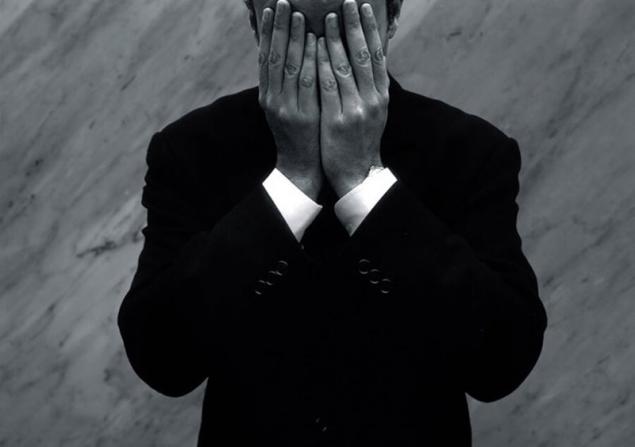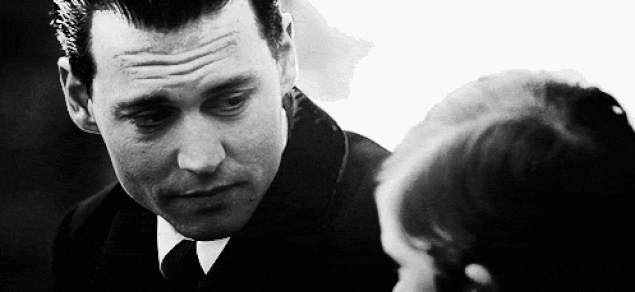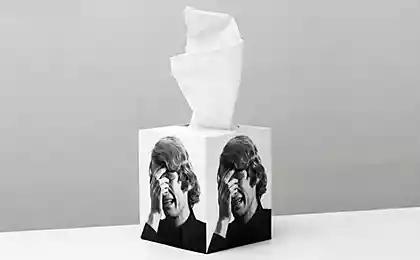583
How is the guilt
In modern society, where the manipulation of the emotions of others has become an effective management tool, it is very important to be able to clearly distinguish between genuine feelings and imposed reactions. In particular, we are talking about fault and guilt.
What is the guilt
Wine is a social emotion, involving awareness of the harm caused, and the subsequent desire (after repentance) effort to correct the offense.
Guilt — the painful feeling arising from habitual interaction as a response to someone's insult, accusations or insults. Moreover, the formation of guilt is not always under the influence of a professional manipulator. Often the skill to live in this state are learned in the family or the team, where relationships are based on violence, suppression of personality.

The signs of guilt include:
And it becomes like the last straw, there is a failure – all the fatigue, all the anger from the undeserved resentments spill into this "little egoist, who sees that mom is tired, but deliberately does it out of spite!".
Mother, who can not adequately respond to the head, which, most likely, also swore in his childhood, makes to blame for their problems more weak and dependent creature – child, especially as the basis for the punishment is always there.
The child genuinely not understanding, not least because of their age, the reasons for her mother's anger, experiencing a natural fear of punishment and tries to avoid that eventually formed the ambition to continuously monitor themselves and the events happening around. The uncertainty and unpredictability of charges kept in constant nervousness. As the climax generates a feeling of guilt.
Substitution of concepts and stereotypes
Very often the aggressor, consciously or unconsciously producing the victim's guilt, operates with such concepts as remorse, conscience and shame: "shame on you make me so upset!" — certainly, says the mother of our example.
However, the conscience is a system of internal beliefs, shame – the feeling experienced in violation of their moral principles, regret , the realization of his wrong. In other words, this is a constructive stage of self-assessment aimed at the development of the self, and guilt is a destructive emotion, externally imposed, and where the self-blame, self-deprecationand inaction and degradation of the individual.
A situation imposed by society stereotypes and roles. So, the woman of the house to be a caring mother and wife – homemaker, but stern and uncompromising Executive who could manage a team, to defend your place and fight for career growth.
Such antagonistic roles require a lot of physical and mental strength and not always be under power to the person, one has thoughts of "I'm a bad mom (wife, daughter)". Fear not cope with the imposed social role turns into guilt.

A vicious circle
The formation of guilt in the family and the team is often a vicious cycle. Mom breaks the bad mood on the child, accustoming him to the role of victim, but she feels guilty for misbehavior, not enough focus. Instead of apologizing and try not to pluck the irritation on the kid, she "bribes" gifts or begins to surround hipersaiti, forgetting about themselves, but at the same time does not allow the child to relax.
In psychology this phenomenon is called over-compensation, that is no good does not. Usually, children very quickly learn how to cause parents guilt and use for their own selfish purposes or because of excessive guardianship become dependent, anxious, acquire other psychological abnormalities.
Guilt generates a person's destructive worldview, and often behavior and is expressed as follows:
In the fight against the imposed guilt plays a big role. The sooner you notice yourself or a loved one the symptoms described earlier and will begin to deal with them, the easier it will be to change everything.published
Author: Maria Kudryavtseva
P. S. And remember, just changing your mind — together we change the world! ©
Source: maria-kudryavtseva.ru/chuvstvo-vinyi/
What is the guilt
Wine is a social emotion, involving awareness of the harm caused, and the subsequent desire (after repentance) effort to correct the offense.
Guilt — the painful feeling arising from habitual interaction as a response to someone's insult, accusations or insults. Moreover, the formation of guilt is not always under the influence of a professional manipulator. Often the skill to live in this state are learned in the family or the team, where relationships are based on violence, suppression of personality.

The signs of guilt include:
- the pursuit of self-loathing, self-abasement
- feeling of worthlessness, futility
- inadequate evaluation of their success (all the good is perceived by man an unfair chance, because he is able to only bad things were in the past and no doubt will follow in the future)
- the lack of internal confidence, all the actions aimed at getting rid of guilt, not on achieving your goals and desires
- the constant feeling of resentment, self-pity, discouragement, and despair
- every act of violence is preceded by an explanation that the person is bad, insignificant, and therefore, by default, deserves punishment and should not to resist, that is, imposed the role of "scapegoat"
- violence will cease only after the "correct" reaction – tears, apologies, gifts, man on a reflex level instilled the realization that he is guilty and should be punished, even if she thinks she didn't do anything
And it becomes like the last straw, there is a failure – all the fatigue, all the anger from the undeserved resentments spill into this "little egoist, who sees that mom is tired, but deliberately does it out of spite!".
Mother, who can not adequately respond to the head, which, most likely, also swore in his childhood, makes to blame for their problems more weak and dependent creature – child, especially as the basis for the punishment is always there.
The child genuinely not understanding, not least because of their age, the reasons for her mother's anger, experiencing a natural fear of punishment and tries to avoid that eventually formed the ambition to continuously monitor themselves and the events happening around. The uncertainty and unpredictability of charges kept in constant nervousness. As the climax generates a feeling of guilt.
Substitution of concepts and stereotypes
Very often the aggressor, consciously or unconsciously producing the victim's guilt, operates with such concepts as remorse, conscience and shame: "shame on you make me so upset!" — certainly, says the mother of our example.
However, the conscience is a system of internal beliefs, shame – the feeling experienced in violation of their moral principles, regret , the realization of his wrong. In other words, this is a constructive stage of self-assessment aimed at the development of the self, and guilt is a destructive emotion, externally imposed, and where the self-blame, self-deprecationand inaction and degradation of the individual.
A situation imposed by society stereotypes and roles. So, the woman of the house to be a caring mother and wife – homemaker, but stern and uncompromising Executive who could manage a team, to defend your place and fight for career growth.
Such antagonistic roles require a lot of physical and mental strength and not always be under power to the person, one has thoughts of "I'm a bad mom (wife, daughter)". Fear not cope with the imposed social role turns into guilt.

A vicious circle
The formation of guilt in the family and the team is often a vicious cycle. Mom breaks the bad mood on the child, accustoming him to the role of victim, but she feels guilty for misbehavior, not enough focus. Instead of apologizing and try not to pluck the irritation on the kid, she "bribes" gifts or begins to surround hipersaiti, forgetting about themselves, but at the same time does not allow the child to relax.
In psychology this phenomenon is called over-compensation, that is no good does not. Usually, children very quickly learn how to cause parents guilt and use for their own selfish purposes or because of excessive guardianship become dependent, anxious, acquire other psychological abnormalities.
Guilt generates a person's destructive worldview, and often behavior and is expressed as follows:
- violence against his person with the groans of others is perceived as the norm: "I did this to myself"
- lack of initiative, inability to defend their interests: "I don't deserve"
- the subconscious desire to punishment, as expressed in injuries, loss of belongings and money, as well as the tendency to be scammers, manipulators, to go on about them, use the vital principle of sacrifice: the servility, the nagging, the prosecution
- the belief that life is a performance in which need to play a role that the "key to seem and not to be", to bring itself to perfection in the eyes of others, regardless of the internal state, is wishful thinking
- a clear idea of the unattainable ideal of life, all actions and achievements are measured and compared with the expectations of others
- the intolerance of criticism (as no surprise) – a man with an exaggerated sense of guilt is so fixated on the soul-searching that even friendly advice is perceived as a hint of imperfection and on the fence about it
- the inability to build normal human relationships
- inability to be happy
In the fight against the imposed guilt plays a big role. The sooner you notice yourself or a loved one the symptoms described earlier and will begin to deal with them, the easier it will be to change everything.published
Author: Maria Kudryavtseva
P. S. And remember, just changing your mind — together we change the world! ©
Source: maria-kudryavtseva.ru/chuvstvo-vinyi/























